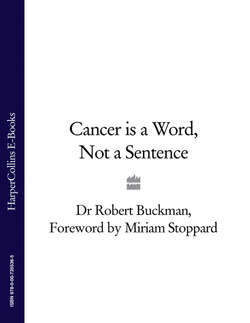Читать книгу Cancer is a Word, Not a Sentence - Miriam Stoppard - Страница 20
Chemotherapy
ОглавлениеChemotherapy involves the treatment of cancers by drugs that, to some extent, damage all growing cells. Chemotherapy drugs work in the treatment of the cancers because, overall, they do much more damage to cancer cells than they do to normal cells.
A cancer mass has many more growing cells inside it than normal tissue does, and that is why chemotherapy agents generally do more extensive damage to cancers than they do to normal tissues.
However, by their very nature most chemotherapy agents do some damage to all growing cells. That is why many of them cause your hair to fall out (temporarily), because they damage the growing cells at the hair root. Similarly, they may cause mouth sores by damaging the growing cells in the mouth. More importantly, they can affect the growing cells in the bone marrow, which are responsible for making the various components of blood. Hence, many (but not all) chemotherapy agents can reduce your white cells count (a condition called neutropenia) making you more susceptible to infections and fevers. They can also reduce your platelets (a condition caused thrombocytopenia) which are important in helping blood to clot. Hence you may develop bruises or bleeding. Chemotherapy can also affect the red cells (causing anaemia) that contain haemoglobin and this would cause you to look pale and to feel tired and short of breath.
Most chemotherapy agents also cause some nausea and vomiting, and although this is a common side effect of most of the drugs, it isn’t directly related to their ability to damage growing cells. In fact it appears that there are certain centres in the brain which are particularly sensitive to certain types of chemicals in the bloodstream. These centres are called the chemotactic trigger zone (CTZ) and the vomiting centre (VC).
